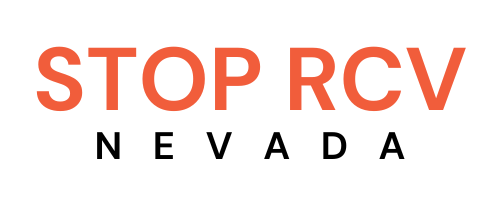In less than eight weeks, Americans will elect their next President. For Nevadans, this election also means deciding on the future of open primaries and voting on whether to adopt ranked-choice voting (RCV) for state elections. All three votes carry weight. However, whether Nevada adopts a more complicated voting system will have a lasting impact on its democracy.
RCV Undermines Nevada’s One-Person-One-Vote Principle
RCV allows voters to rank up to five candidates by preference. If no candidate receives over 50% of the votes, the candidate with the fewest votes is eliminated, and those votes are redistributed according to the voters’ next preferences. This process continues until a candidate achieves a majority.
Under the current “first-past-the-post” system, voters select only one candidate, and the candidate with the most votes wins, even if they do not achieve an outright majority. Each vote counts only once, and all votes carry equal weight. RCV will undermine Nevada’s one-person-one-vote principle, diluting each vote with every round of tallying.
Critics Warn of Voter Confusion
The benefits of RCV are contested. Proponents of this multiple-choice voting system argue that RCV engages more voters, encourages moderate candidates, and gives Nevadans more options in general elections.
But the opposite seems to be true. The system can lead to an erosion of voter intent.
Under RCV, voters who passionately support a particular candidate or cause may find their vote “reallocated” to candidates they are less enthusiastic about. If their preferred candidate is not a frontrunner, their vote may eventually end up supporting a candidate they ranked lower, potentially one they do not fully support.
RCV is akin to visiting a restaurant for its signature dish, but learning upon arrival, that this special dish may be unavailable. Guests must select four more dishes, ranked in preferential order, without knowing which meal will eventually go from the kitchen to the table. Or, in political terms, voters will roll the dice with their votes, unable to gauge who will represent them post-election. Their ballot might contribute to the success of a candidate they did not initially want, thereby reducing the strength of their political expression.
Become an Election Integrity Advocate
Help stop RCV by spreading the word! Sign up below to receive email alerts about the latest news and what you can do to help stop RCV in Nevada.
"*" indicates required fields
The Risks of RCV for Political Diversity
Voters committed to more ideologically driven or grassroots candidates will lose out. RCV increases the chances of an early elimination of such candidates, who often are not the first or second choice in broader preferences. The quick removal makes it harder for voters committed to those candidates or causes to see their preferences reflected in the outcome, potentially demotivating them from voting.
This erosion of voter support will weaken Nevada’s pluralistic political landscape. The possibility of influencing policy fuels political participation. RCV will diminish the chances of non-mainstream political parties competing fairly with established candidates and undermining their motivation to engage in politics.
Several US States Reject RCV
Many US states have recognized RCV as a threat to their democracy. Alabama, Florida, Idaho, Kentucky, Louisiana, Mississippi, Montana, Oklahoma, South Dakota, and Tennessee have outright banned the ranked voting system. “It’s a bad, complicated and expensive idea,” said South Dakota Senator John Wiik (R), who introduced his state’s bill prohibiting RCV.”
Research supports his view. A 2014 academic study found disadvantaged groups continuously losing out in RCV-based electoral systems. These groups are more likely to encounter barriers to informed electoral participation, such as a lack of candidate information or confusion about the RCV process. The study also found that the system discourages voters from turning up to cast their vote at all, compromising electoral inclusiveness.
Nevadans Will Have to Make a Choice
In November, Nevada voters will have to make a choice that will impact the future of the state’s political system. You can protect Nevada’s political plurality by voting against RCV. Sign up to learn how ranked-choice voting could damage Nevada’s political landscape and join the conversation. Protect our democracy and make your vote truly count.
Become an Election Integrity Advocate
Help stop RCV by spreading the word! Sign up below to receive email alerts about the latest news and what you can do to help stop RCV in Nevada.
"*" indicates required fields
